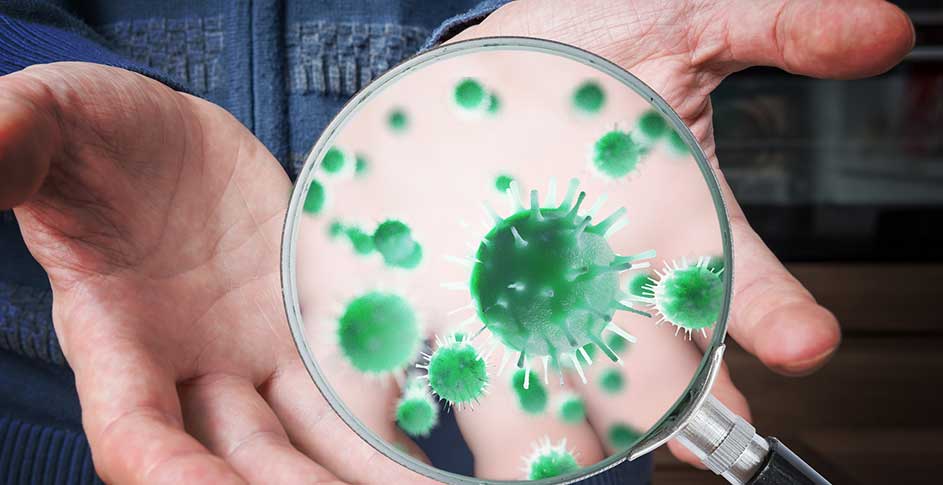The 2024-2025 Flu Season has officially begun in North America. If you’ve been following our blog, you’re already familiar with flu season basics (and precautions such as ActivePure Technology). However, there are some interesting news tidbits (good, bad, and weird) this season.
The Good: An Entire Flu Lineage Appears To Have Gone Extinct
There are 2 main viruses responsible for flu season: Influenza A and Influenza B. In 2013, the United States began using flu vaccines which offered protection against an Influenza B virus lineage named “Yamagata.” (Flu lineages are named after the place where they are first isolated). Yet B/Yamagata hasn’t made an appearance since March of 2020. This may be due to increased precautions around COVID-19 or to other viruses out-competing B/Yamagata. While the virus has not been formally declared extinct, the FDA no longer considers it a public health threat.
For this reason, the United States will be returning to “trivalent” vaccines this flu season. A trivalent vaccine protects against 3 lineages of a virus, rather than 4. Based on “surveillance data related to epidemiology and antigenic characteristics of recent influenza isolates, serological responses to 2023-2024 vaccines, and the availability of candidate strains and reagents,” the FDA recommended that 2024-2025 flu season vaccines contain the following strains:
- “an A/Victoria/4897/2022 (H1N1)pdm09-like virus;
- an A/Thailand/8/2022 (H3N2)-like virus; and
- a B/Austria/1359417/2021 (B/Victoria lineage)-like virus.”
The above combination refers to egg-based vaccines; most flu vaccines are manufactured using chicken eggs to grow the virus. However, a minority of flu vaccines are created using either mammalian cell cultures or cell recombinant technology. These types of vaccines will still target the B/Austria lineage but will have different A lineages — an A/Wisconsin/67/2022 (H1N1)pdm09-like virus and an A/Massachusetts/18/2022 (H3N2)-like virus.
As a reminder, flu shots do not contain live viruses, but only the virus’ outer protein coatings. Vaccines in the form of a nasal spray may contain weakened live viruses.
The Bad: Animal Variants Keep Crossing Over
Current Influenza A infections (at least for humans) usually fall into 2 subtypes — H1N1 (which caused the 2009 pandemic) and H3N2 (which caused the 1968 pandemic). Every year, however, a few people are infected by variants that normally circulate in animals — usually through direct animal contact. At the end of last flu season, for instance, a child was infected with swine flu H1N2 on his family farm. This flu season, 2 Minnesota patients acquired a new variant of H3N2 after attending an agricultural fair. As such crossovers are a yearly occurrence, they aren’t of immediate concern....unless there’s no animal contact involved.
Recently, the CDC identified a Missouri patient who appears to have acquired bird flu without direct animal contact. While the CDC claims that the risk of human-to-human transmission is low, the fact that the cause of infection can’t be identified is unnerving. The silver lining, however, is that the virus has not mutated sufficiently to thrive in human lungs.
The Weird: Home Vaccines, Tracking Deaths, & Egg Allergies
Here are some other flu season updates you may wish to know:
- As of last year, flu deaths are being tracked differently. Prior to the 2023-2024 flu season, the CDC included deaths due to a combination of influenza and pneumonia in their flu mortality count. With COVID-19 in the mix, however, this measure is no longer providing accurate data. Thus, the CDC now counts flu deaths only if they are due to influenza alone. “Although [this] will underestimate the full impact of influenza mortality, [it] allows for tracking trends in the impact of influenza on mortality and is not as influenced by COVID-19[...]”
- Also as of last year, the CDC says that “additional safety measures are no longer recommended for flu vaccination of people with an egg allergy beyond those recommended for receipt of any vaccine.” In other words, even if you are allergic to eggs, you can now get your vaccine at the pharmacy like everyone else (assuming, that is, that you meet all other requirements and your doctor recommends it).
- Speaking of where to get vaccines, the FDA just approved a brand of vaccine for use in the home. This nasal spray vaccine can be prescribed online and shipped to the homes of eligible individuals. Such a convenience might be of especial help to the elderly and their caretakers
Proceed With Sensible Optimism
One final piece of good news — experts are predicting a mild flu season this year. However, even a mild flu season involves hundreds of thousands of hospitalizations and tens of thousands of deaths. Thus, continue to take your standard seasonal precautions and follow your doctor’s advice. Adding an air purifier for your home, such as the ActivePure Surface & Air Guardian Pro, can also help improve your peace of mind.
By the way, influenza isn’t the only type of respiratory virus in season. You’ve likely heard of RSV, but what about HPMV? If not, we’ve written a handy introduction explaining what you should know:



